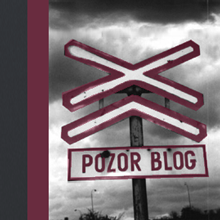 Last week Jon Stewart got in trouble for mocking media commentators who might say things like “Slovakia’s president is a cow”. This week, we have the news that its next president might be the current prime minister. For those who know Slovakia’s constitutional system, this is perhaps even /less/ likely: why would why a politician at the top of his game–at the top of the game in the region–choose an ostensibly ceremonial presidency over his current position as prime-minister and party leader in a strong majority government. Yet people close to Fico have for years been saying that he’d rather be president, so many of them, in fact, that it was hard to doubt the rumors had something behind them even while it was hard to imagine that Fico would actually do it. As a result, however, I’ve been thinking about this for awhile and have a few thoughts below about why Fico might do this and why we should care (ranked to some degree in order of ascending probability).
Last week Jon Stewart got in trouble for mocking media commentators who might say things like “Slovakia’s president is a cow”. This week, we have the news that its next president might be the current prime minister. For those who know Slovakia’s constitutional system, this is perhaps even /less/ likely: why would why a politician at the top of his game–at the top of the game in the region–choose an ostensibly ceremonial presidency over his current position as prime-minister and party leader in a strong majority government. Yet people close to Fico have for years been saying that he’d rather be president, so many of them, in fact, that it was hard to doubt the rumors had something behind them even while it was hard to imagine that Fico would actually do it. As a result, however, I’ve been thinking about this for awhile and have a few thoughts below about why Fico might do this and why we should care (ranked to some degree in order of ascending probability).
I. For Fico other concerns trump power (possible, though surprising). There are at least two reasons Fico might be willing to sacrifice power by moving to the presidency
A. Blackmail (probability unclear, but I certainly hope not). There are persistent but ill-supported rumors that some “they” (primarily corporate interests) have information that could destroy Fico’s career and that they use this leverage in ways that he feels are overly limiting and may make him willing to take a less powerful position just to escape the sword of Damocles. I am not a fan of conspiracy theories but that may only be because the kind of work I do depends on more or less transparent political systems and this would suggest that Slovakia is not in that category.
B. Health issues (possible, oft repeated). There are occasional rumors of panic attacks and during his first term Fico certainly was not a model of health (and had the kinds of health problems that often indicate incredibly high stress levels). This term has seemed, at least from my distant view, to be a healther one for him. During the previous term there were consistent claims that “Fico doesn’t like the day-to-day fighting of politics (even if he is good at it), and that the presidency offered him a position of relative ease that he would be willing to accept at the expense of his ability to shape Slovakia’s destiny.
II. Fico does not believe this entails a loss of power (entirely possible). There are several possible reasons for this.
A. (Rather unlikely) He plans to change the current formal institutions to increase the power of the presidency: Fico’s party does not have a constitutional majority, and so this seems unlikely at the moment, and if this has a negative effect on Fico’s party, then it may be unlikely for the forseeable future, but it is at least theoretically possible
B. (Somewhat more likely) He plans to use the current formal institutions in ways that increase the power of the presidency. Fico may believe that he can play a central role even if he is no longer prime minister. As Milos Zeman has demonstrated most recently in the Czech Republic, presidents can be powerful even in systems where they are formally weak. There are at least two possible paths to this:
- (Relatively unlikely but possible) Fico is willing to accept the decline of his party or even its splintering (some say because he sees it as inevitable, though I find this doubtful) and knows that the president becomes more important in a more chaotic party environment. This would mean sacrificing what has been Fico’s most remarkable accomplishment: creation of a party that has had less defection than any major party in Slovakia’s history, even as it has become the biggest party in Slovakia’s history. That’s not something that goes into the record books but for those in the know, it’s the World Cup of politics.
- (Relatively more likely) Fico thinks he can retain control of his party even as president. There is no precedent for this in Slovakia but there are limited precedents in other countries. It would be a bit of a challenge but Fico may be able to do it where others could not. It would become a job change rather than a fundamental disruption to the system. The maintenance of power could be enhanced by the odd little provision of Slovakia’s constitution that gives Slovakia’s president, “the right to be present at meetings of the Government of the Slovak Republic, to chair them, and to demand reports from the Government or its members.” (Art. 102r)
It’s also possible that there is some combination of these or others that I am not imagining. If Fico imagines the presidency to be a slightly easier job without a huge decrease in power, then his choice is less inexplicable. Of course he may be wrong on both counts, especially the latter.
III. Finally, what follow-on questions does this raise:
- Can Fico win. Yes. It is hard to see him losing to the current crop of candidates, though these things are always potentially surprising.
- What happens to Smer? This is /the/ question. If II.B.2. above is correct then maybe not much, but he will need to impose a new model in which even as president he can still act as the decisive voice among factions within Smer. He will need a kind of Medvedev-like servility from his successors in party and government. Perhaps that’s the case.
Whatever the case, Slovakia continues to fail to be boring.
